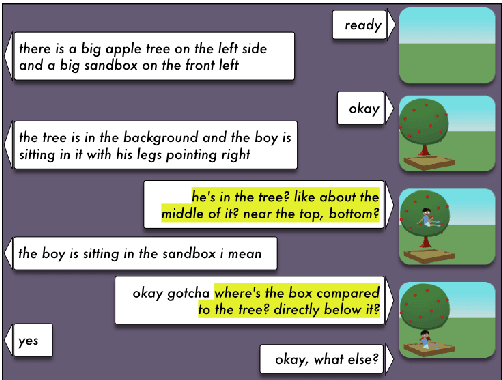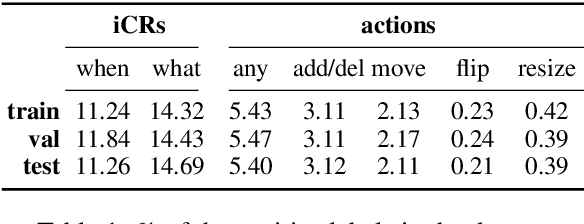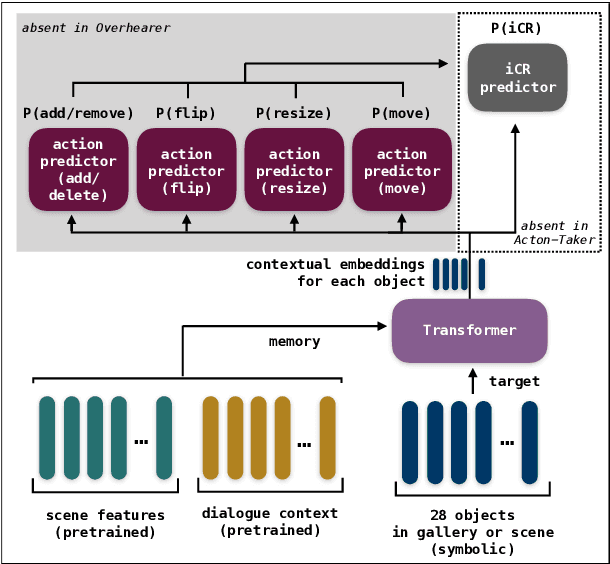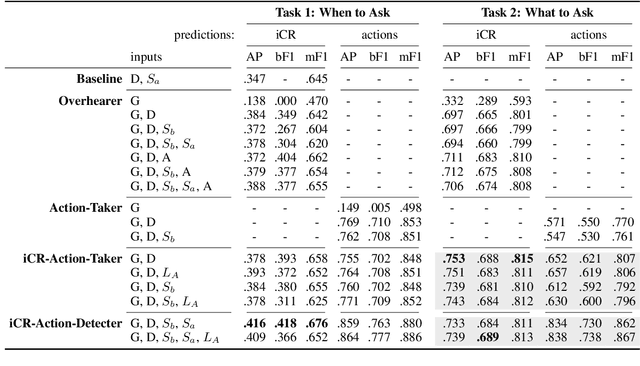Taking Action Towards Graceful Interaction: The Effects of Performing Actions on Modelling Policies for Instruction Clarification Requests
Paper and Code
Jan 30, 2024



Clarification requests are a mechanism to help solve communication problems, e.g. due to ambiguity or underspecification, in instruction-following interactions. Despite their importance, even skilful models struggle with producing or interpreting such repair acts. In this work, we test three hypotheses concerning the effects of action taking as an auxiliary task in modelling iCR policies. Contrary to initial expectations, we conclude that its contribution to learning an iCR policy is limited, but some information can still be extracted from prediction uncertainty. We present further evidence that even well-motivated, Transformer-based models fail to learn good policies for when to ask Instruction CRs (iCRs), while the task of determining what to ask about can be more successfully modelled. Considering the implications of these findings, we further discuss the shortcomings of the data-driven paradigm for learning meta-communication acts.
 Add to Chrome
Add to Chrome Add to Firefox
Add to Firefox Add to Edge
Add to Edge